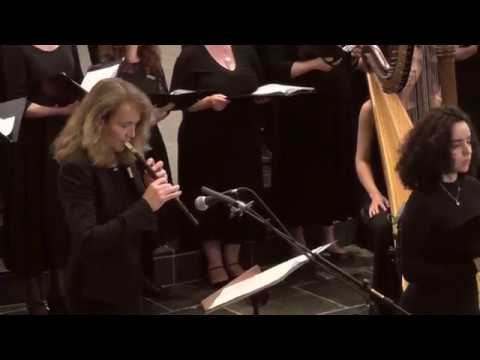Leonard Evers (artistic director alBahr – Mare Nostrum) thinks that too often a distinction is made between ‘Western’ music on the one hand and Eastern ‘Arab’ music on the other. This while, for centuries, there has been a blending of influences around the shores of the Mediterranean. In the music tradition, there has never been a hard division between east and west: the sea is a fluid centre of exchange. To demonstrate this, Evers developed alBahr – Mare Nostrum, a programme of (choral) music in which this centuries-old exchange can be clearly heard.
alBahr – Mare Nostrum (‘our sea’ in Arabic and Latin)
For the interpretation of alBahr – Mare Nostrum, Evers was inspired by the work Planctus Cygni by composer Gerard Beljon. Planctus Cygni sketches a picture of a swan restlessly gliding over the turbulent Mediterranean Sea, longing for a coast to call ‘home’. Evers: “The underlying thematic line is ‘longing’. Especially the longing for a stable place, a home. That’s also what many of the lyrics are about, like those by composers Gerard Beljon and Aftab Darvishi. Longing is a subject that defines almost all the music in this project, not only through the individual texts but also as a whole. Everyone longs for a home and you can hear this longing in alBahr – Mare Nostrum, through all the works, regardless of their musical genre.”
Arrangers Hugo Bouma, Maarten Ornstein, Marijn van Prooijen and Peter Vigh adapted traditional music from Bosnia-Herzegovina, Lebanon and Morocco for this project.
Especially for this occasion, Iranian-Dutch composer Aftab Darvishi is writing a new work in Farsi for choir and instrumental soloists: HamZad, Persian for ‘my companion’. The work is inspired by a poem by the Persian poet هوشنگ ابتهاج (Hooshang Ebtehaj) about the longing for a once-heard voice among the stars. Darvishi is a much sought-after composer who has previously worked with the Kronos Quartet, Hermes Ensemble, Oerknal and De Ereprijs. In 2019, her opera Turan Dokht premiered during the Holland Festival.
More info here
Warning: Undefined variable $related_item in /var/www/vhosts/donemus.nl/httpdocs/wp-content/plugins/oxygen/component-framework/components/classes/code-block.class.php(133) : eval()'d code on line 2
Warning: Attempt to read property "ID" on null in /var/www/vhosts/donemus.nl/httpdocs/wp-content/plugins/oxygen/component-framework/components/classes/code-block.class.php(133) : eval()'d code on line 2

